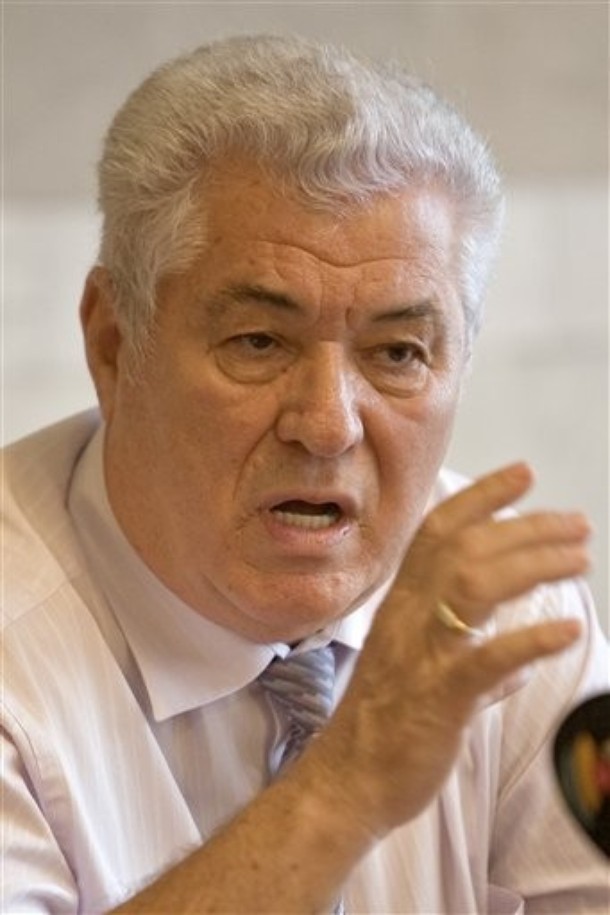
Moldova’s Politics Remain Centered on the Communist Party
Publication: Eurasia Daily Monitor Volume: 6 Issue: 148
By:

With the Communist Party still the strongest by far in society and holding almost half the seats in the new parliament, Moldova’s post-communist transition becomes peculiarly complicated. The crucial question is whether the transition can be managed together with the Communist Party in a broad-based coalition; or, alternatively, if it must be pursued through a confrontation against that party, exacerbating the country’s already deep polarization and prolonging a dangerous vacuum of governance.
Paradoxically in Moldova, the Communist Party’s cooperation to advance the transition process may be both necessary and feasible. The issue mainly depends on whether the Communist Party agrees to join other parties in a pact on reforms, as a prerequisite to forming a parliamentary majority for governance. In order to enter such an alliance as a credible partner, the Communist Party would also have to undertake its own, overdue internal reform.
The party has proven its resilience, but has clearly entered a period of decline. It garnered approximately 45 percent of the total votes cast in the July 29 elections, some 4 percent down from the party’s April performance. It lost 13 parliamentary seats from 60, down to 48 in percentage terms, through the redistribution of votes under the proportional system (Moldpres, Basapres, August 1).
Although still strong, the party is no longer capable of hegemonic ambitions; and is bound to decline gradually through generational and societal changes (including the ever-higher share of the Moldovan expatriate vote from Europe). A party of this size remains a major factor of stability under any circumstances; in the highly fractious, destabilization-prone Moldova, this party can form a basis of stability for the duration of another electoral cycle. During this term and beyond it, the Communist Party’s patronage powers and societal deference to its leaders will steadily and inevitably decline.
On the other hand, the Communist Party can act as an insurmountable blocking minority in the newly elected parliament. The party must decide whether to play spoiler, or to join with other parties in a broad-based political construction. As a spoiler, it can force the holding of new parliamentary and presidential elections -the third ones within 12 months- freezing the country’s external financing for the duration, as well as derailing the negotiation of an association agreement with the European Union. On the other hand, by opting for a coalition-based policy of reforms, the Communist Party could facilitate a real resumption of post-Soviet transformations in Moldova with Western support.
Communist Party leader Vladimir Voronin -serving as temporary acting head of state since April, for an as yet undetermined period- and his team are now considering the following possible options:
1. Narrow alliance of the Communist and Liberal-Democrat parties. With 18 parliamentary seats, the Liberal-Democrat Party has pulled ahead of the Liberal Party in their competition for primacy in opposition ranks. Essentially a project of business tycoons, the Liberal-Democrat Party includes, however, a component drawn from civil society and also a Romanian national-irredentist component. These components may split off in the event that party leader Vlad Filat enters into an alliance with the Communist Party. Moreover, Liberal-Democrats fear that a separate deal with the communists could trigger an exodus of Liberal-Democrats to the militant Liberal Party, whose strategy is geared to collecting all irreconcilable oppositionists under its own wings. Liberal-Democrat leader Vlad Filat harbors presidential ambitions and is currently rejecting any cooperation with the Communist Party (Infotag, July 30 – August 1).
2. Broad alliance of the Communist, Democratic, and Liberal-Democrat parties; or substituting Our Moldova (seven seats) for the Liberal-Democrat Party in the triangle. The Democratic Party’s 13 seats, added to the Communist and Liberal-Democrat seats, would combine to form a stable constitutional majority (making it possible to rectify the constitution’s loopholes and ambiguities) and a stable basis for a legislative cycle. Democratic Party leader Marian Lupu is a potential candidate for the state presidency. The party’s leadership group is the most Westernized among all Moldovan parties. Reborn and rebranded, the party aims to consolidate itself on the left-of-center side of the spectrum. The Democratic Party would only cooperate with the communists on the basis of a clear agenda for reforms; and it would only consider joining an alliance of three parties, ruling out a bilateral alliance with the communists (Basapres, July 30-August 1).
3. Temporary abdication of the Communist Party from power. The party leadership warns, or bluffs, that it may go into opposition (Moldpres, July 30-August 1). In that event, a government could theoretically be formed by an alliance of four parties: the Liberal, Liberal-Democrat, Democratic, and Our Moldova, adding up to 53 seats in the parliament. However, these parties’ differences of outlook and interests would make it very unlikely and perhaps impossible to create and maintain such an alliance. The Liberal Party’s close ties with Bucharest and its confrontational style would pose additional problems. This party does not aim to govern, but rather to gather strength as the main opposition (and sole "right-wing") force. Meanwhile, the communist leadership feels tempted to go into opposition before the economic crisis hits Moldova with full force by the fall. In that case, a non-communist government could soon be brought down by the economic crisis and powerful communist opposition, even before the post-communist transition could start in earnest.




